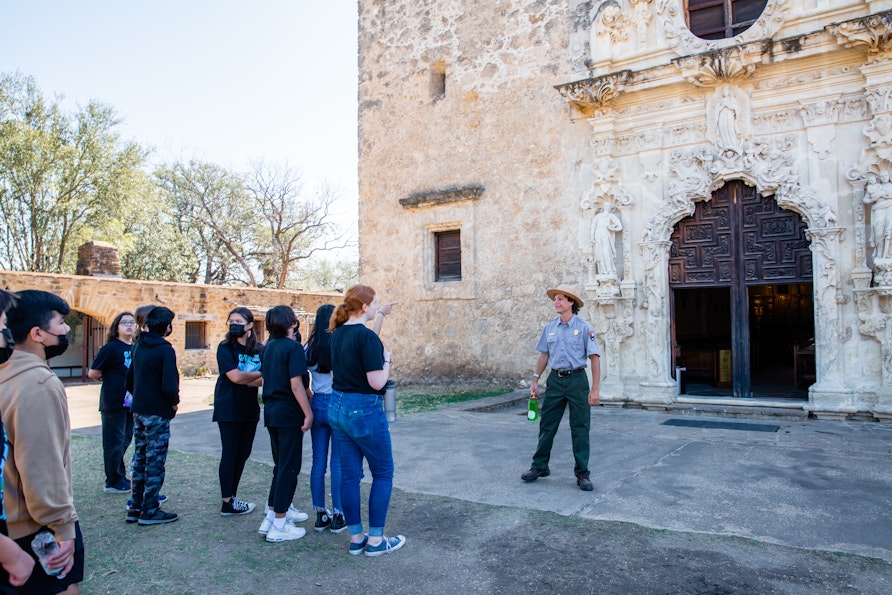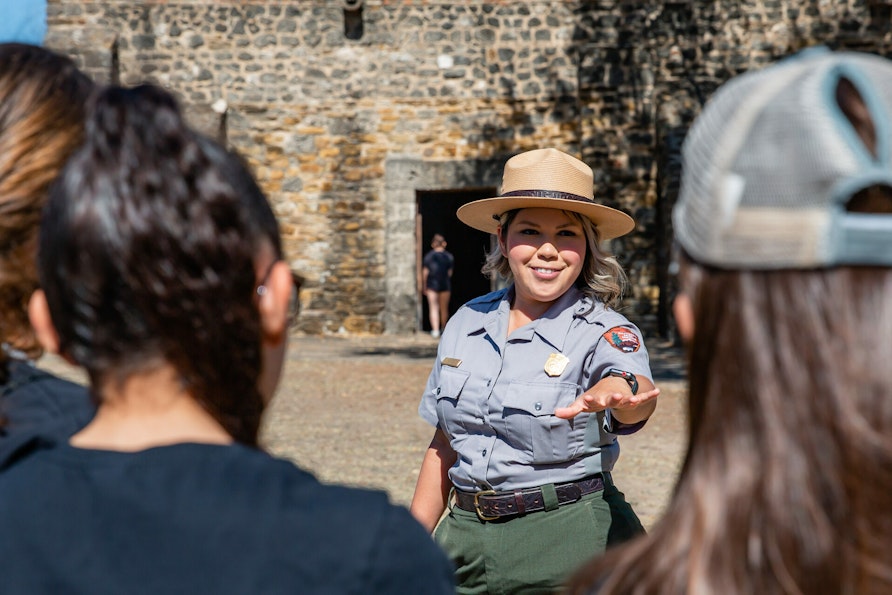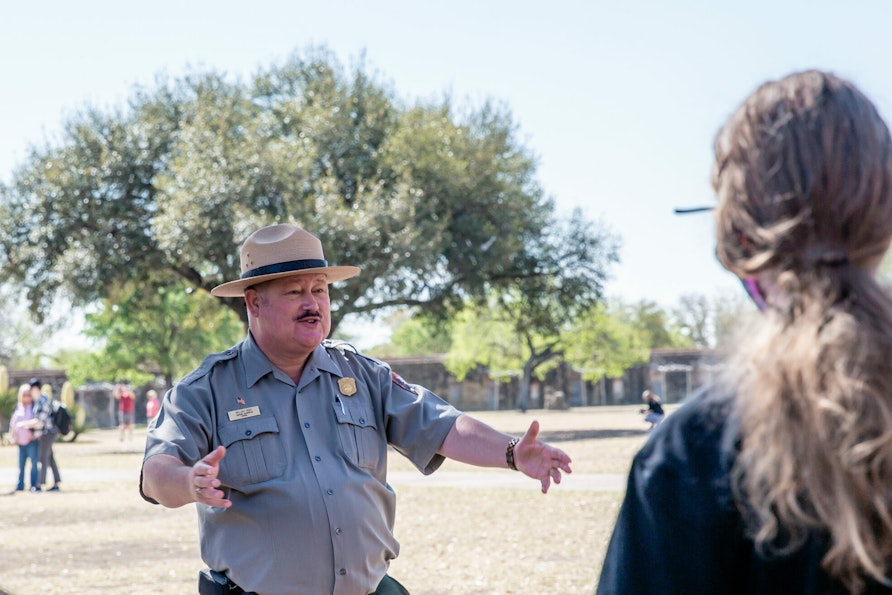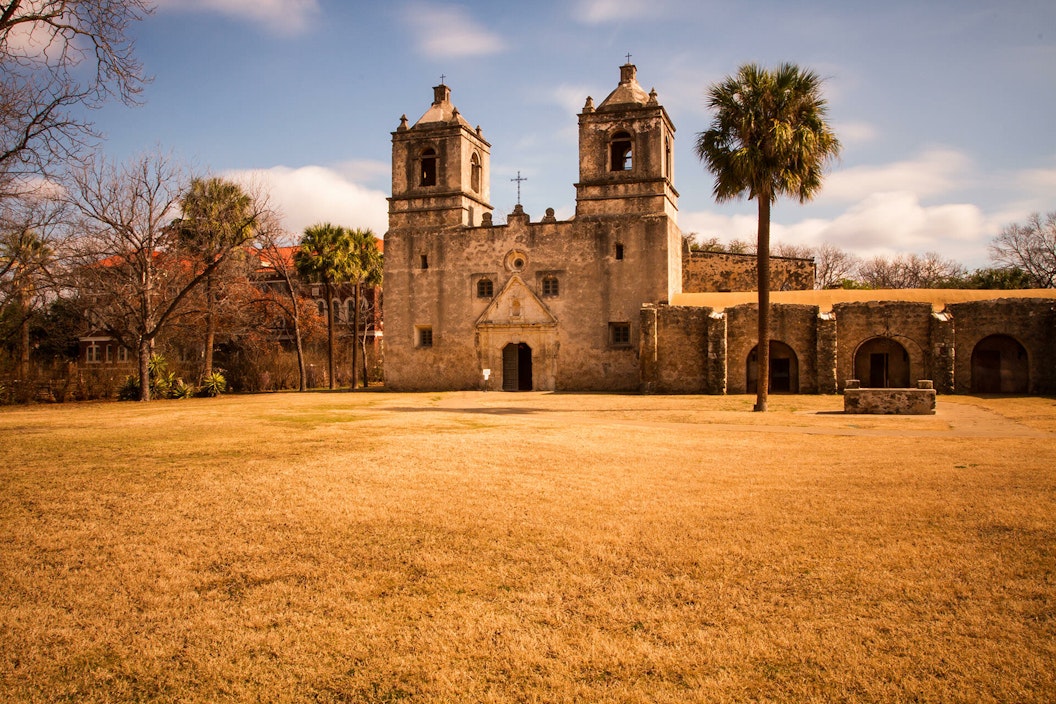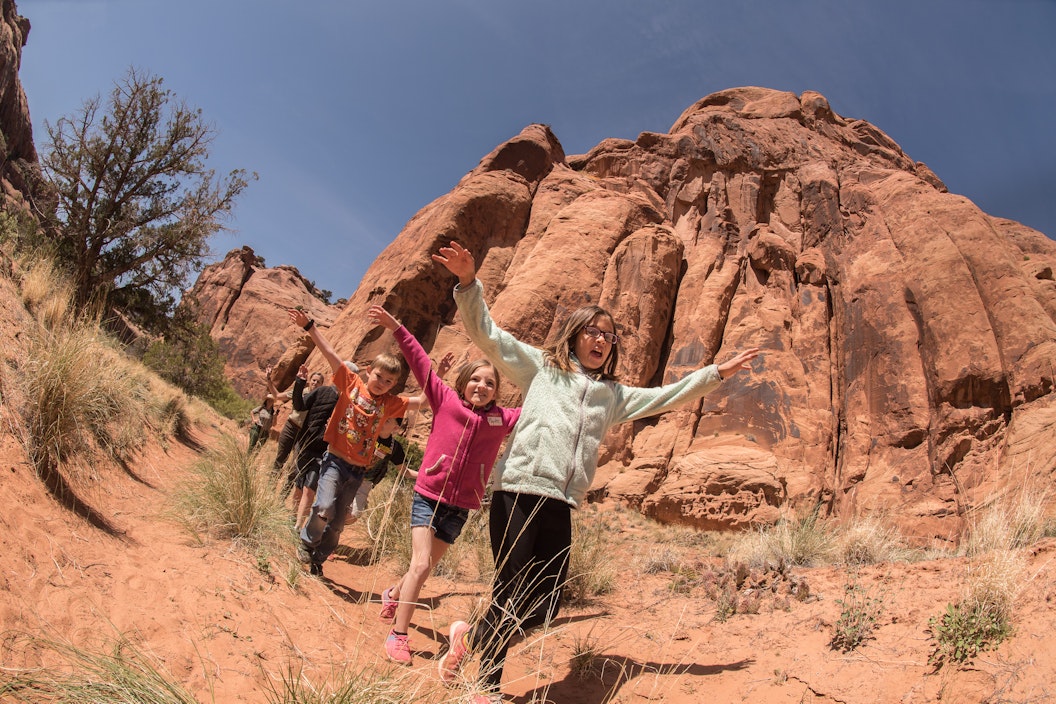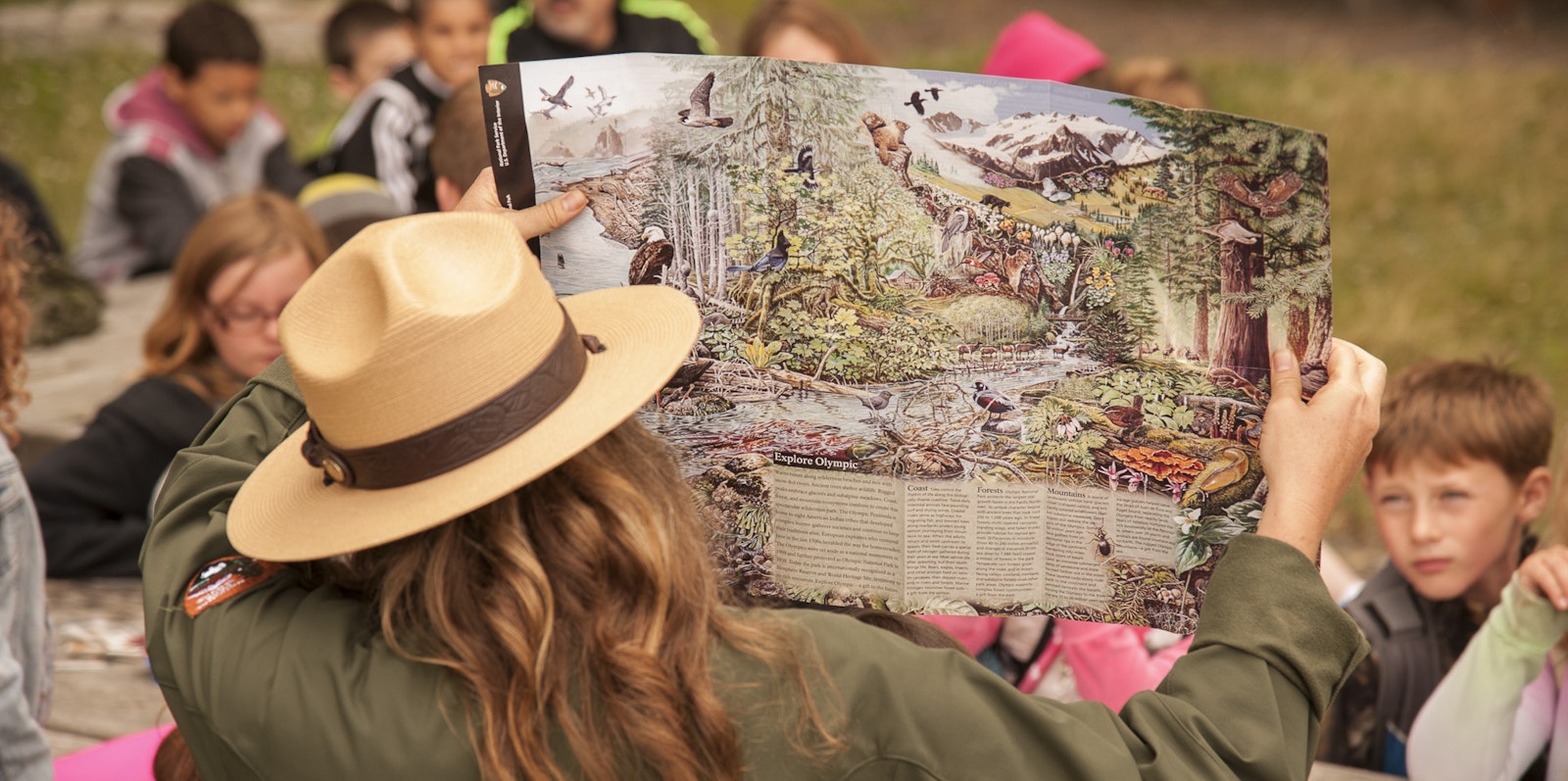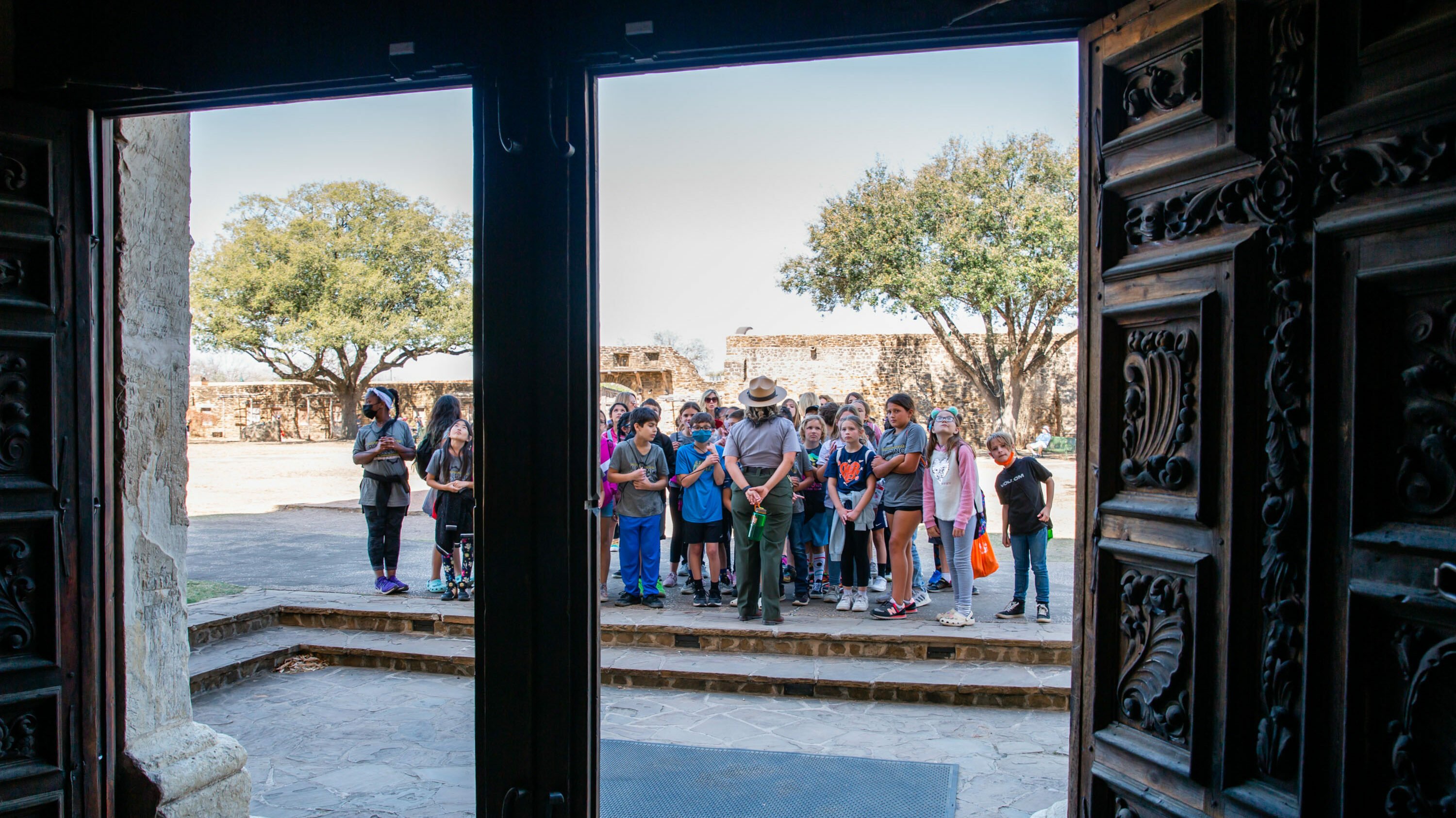
Field Trips Open New Doors for Urban Parks
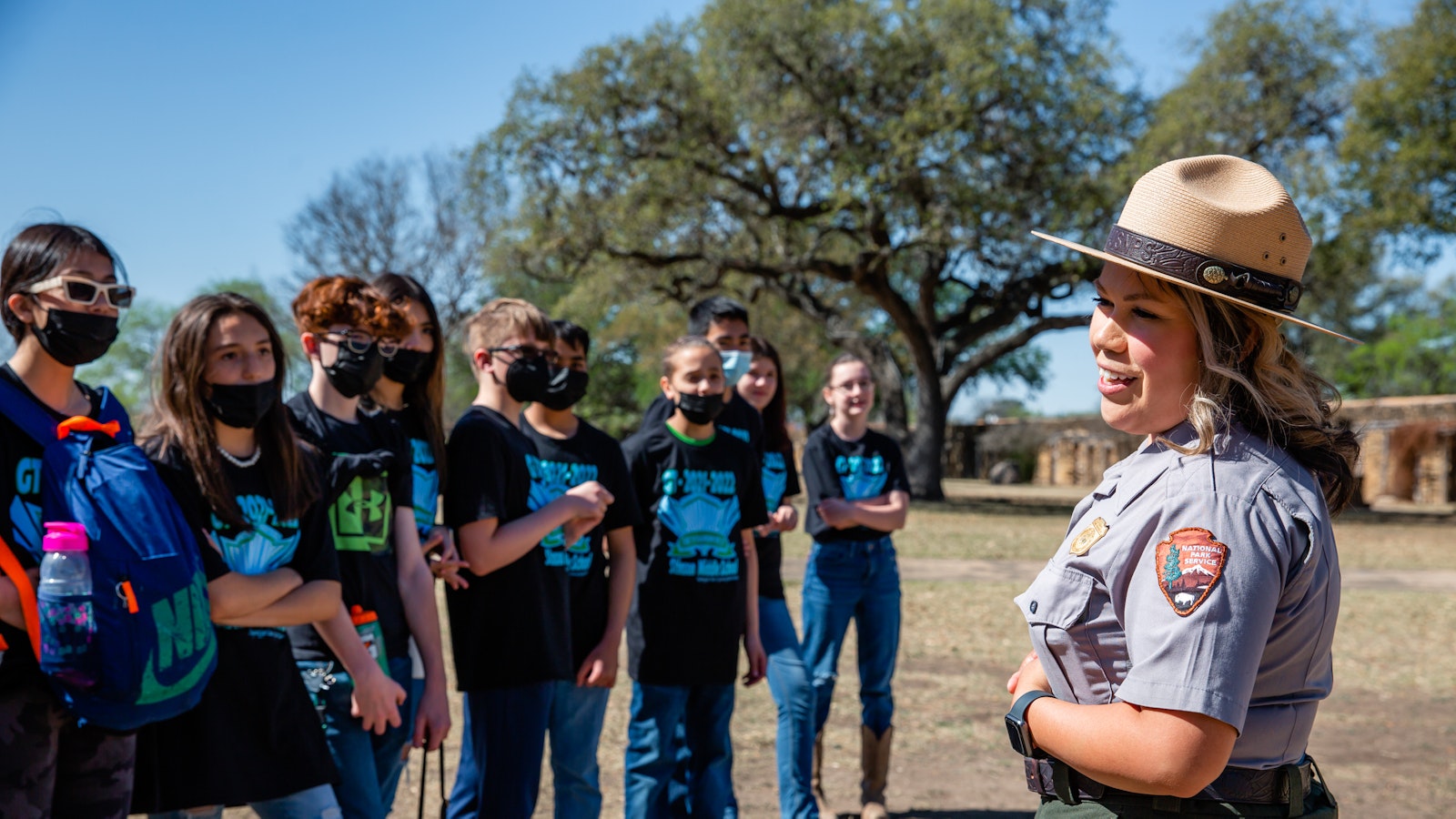
.
.
PT Lathrop has a big goal: serve 20,000 students in one year.
And at San Antonio Missions National Historical Park, this big goal is different. It’s not about getting people out to remote places. It’s about making a national park in the heart of San Antonio a more welcoming place for 1.5+ million San Antonians.
“Urban parks are important to local communities. We are, even in this urban setting, not separate from nature,” says PT Lathrop, Chief of Interpretation and Education at the park. “It’s really important that our community in the greater San Antonio area sees the National Park Service as in their backyard and has that connection.”
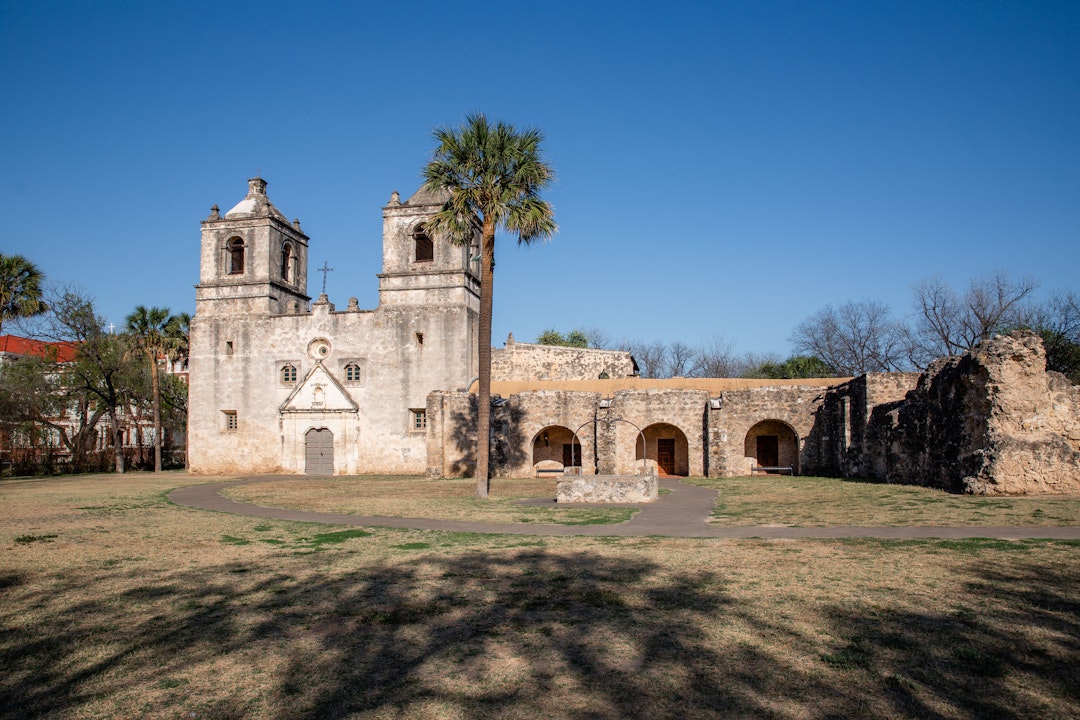

In his nearly two years at the park, Lathrop has worked to put this park on the map with the local community. He oversees a team of nearly 20 rangers responsible for connecting visitors with the park through storytelling, tours, and educational programming.
As a historical site, the park preserves four of the five Spanish frontier missions in San Antonio. The only UNESCO World Heritage Site in Texas, it tells the story of interwoven Spanish and indigenous cultures.
By the early 1700s, the indigenous people living on the land that is now the park had been subjected to Spanish colonization, disease, and drought. Many native inhabitants accepted life on the missions as a means of survival. As the missions grew and evolved, the city grew around them, each impacting the other.
Today, the missions serve a different purpose as a national park site. Park visitors include descendants of the missions paying homage to their ancestors, animal lovers looking for the 318 species in the park, and families biking along the Hike and Bike Trail that winds along the San Antonio River and connects the missions inside the park and the Alamo.
Long-Term Growth With Nearby Students
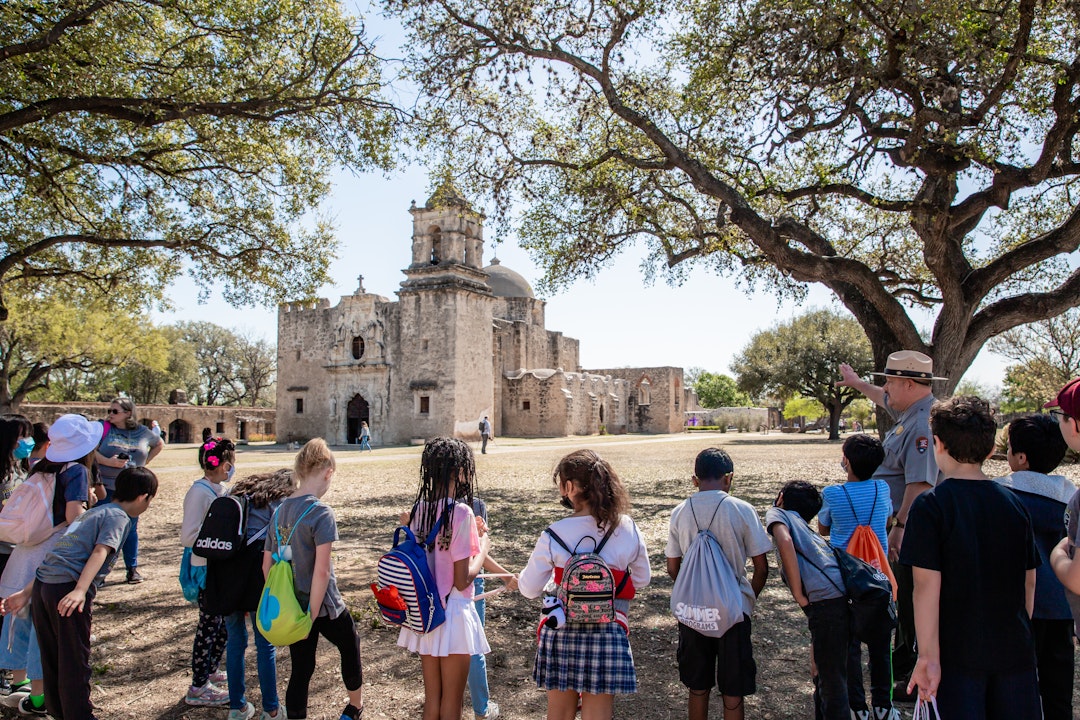
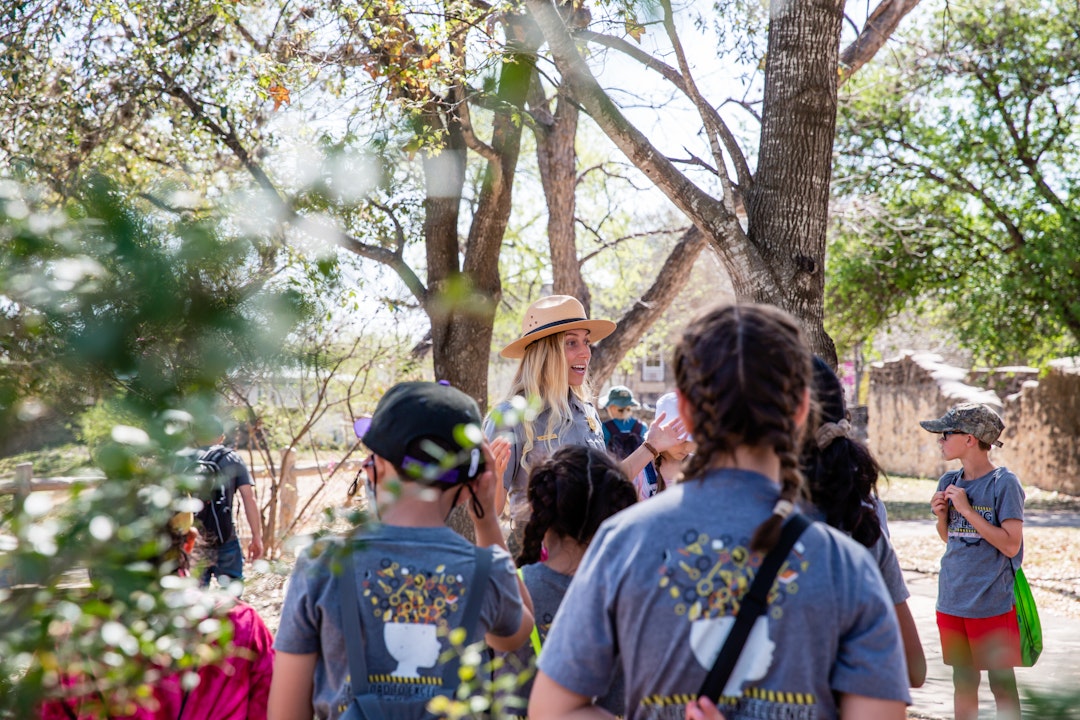
At the center of the park’s plan to reach more local visitors: fourth graders. At a key point in their learning and development, fourth graders are primed to experience national parks.
Which is where Lathrop got the idea for something unheard of in the park: bring 20,000 students on field trips to the park in one year to learn about history, the park itself, and the park’s lasting impact on the city.
He turned to the National Park Foundation (NPF) for funding through the Open OutDoors for Kids program to launch his plan. With funding support from NPF, the park now hosts six to eight weekly field trips, plus additional hybrid and in-classroom experiences.

Four New Seasonal Rangers in Green and Gray
While the cost of transportation is often the biggest barrier for student access and Open OutDoors for Kids grants typically go towards the busses needed to physically transport kids to parks, Lathrop took a different approach. He knew he needed something even more powerful— people.
Seasonal rangers to be exact.
On a ranger-led field trip, the experts in green and gray not only share the story of the park with more students, they add to the richness of the park visit and park experience. They answer questions, a seemingly never-ending stream of ‘what about?’ and ‘how did?’-s from fourth graders eager to soak up all the park has to offer.
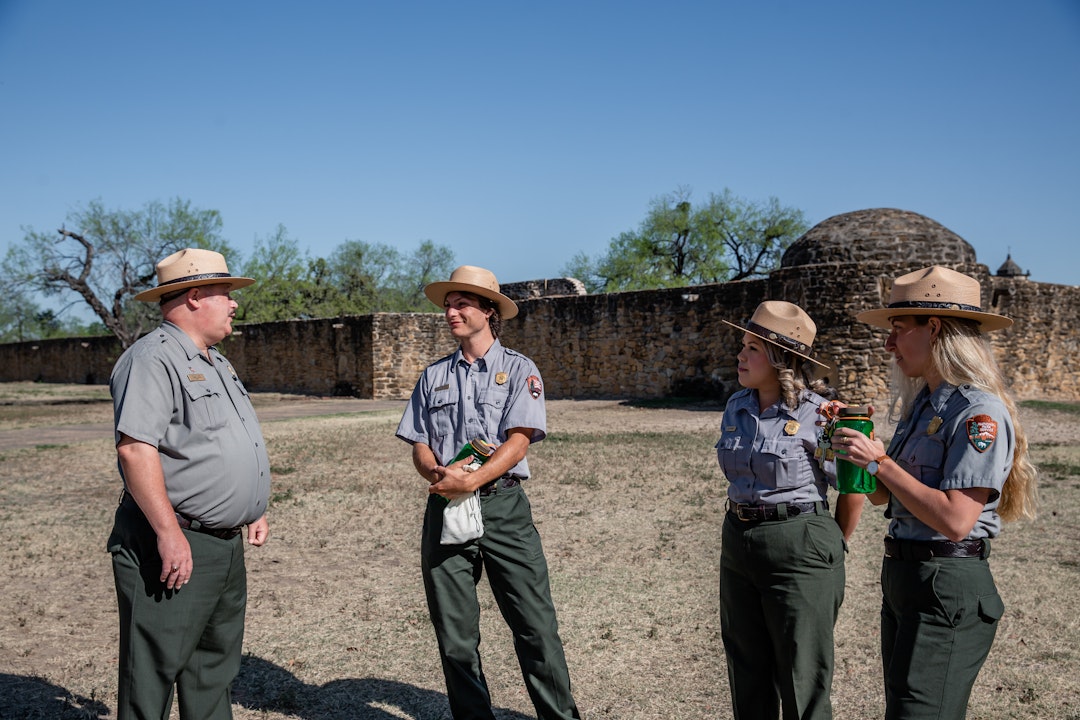
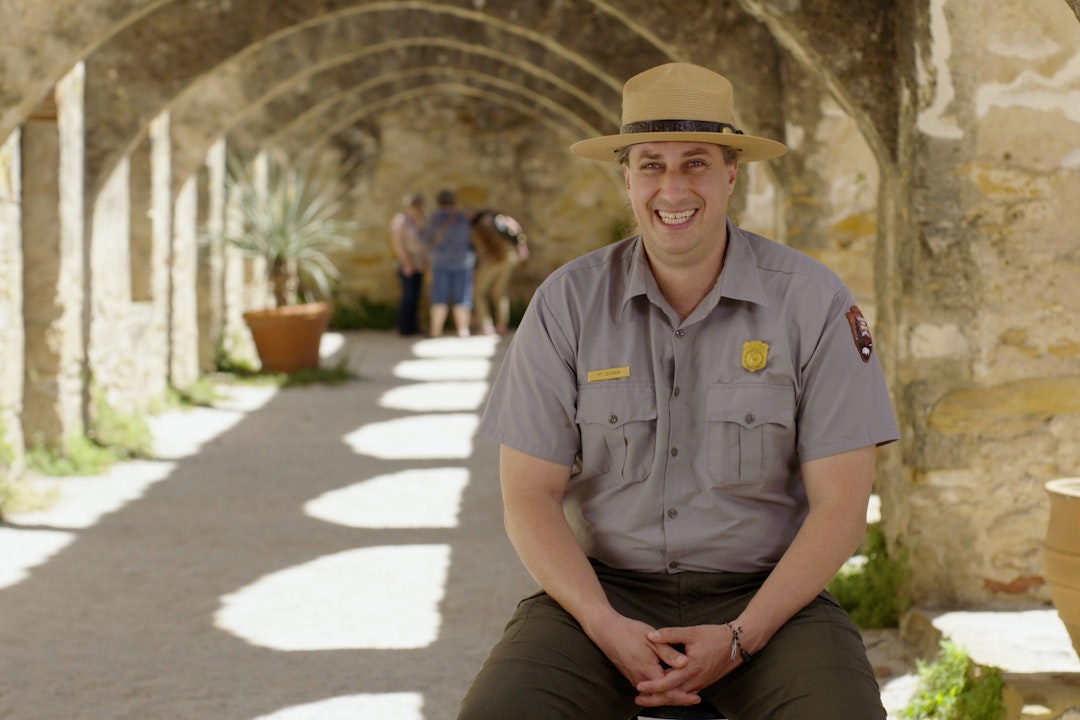
Prior to the Open OutDoors for Kids grant, schools would bring 300, 400, or even 500+ students on a single field trip. But it was Lathrop alone coordinating the trips. He didn’t have a team of rangers to lead the groups. “That’s far too many students for any person, even for a superhero park ranger to ever handle,” Lathrop said.
Knowing the need for this specific kind of guidance, Lathrop applied for the National Park Foundation’s Open OutDoors for Kids grant. He used the funds to hire four seasonal education rangers – quadrupling the park’s ability to both design a new program and lead field trips.
“It was absolutely paramount that our education rangers wore the flat hat, had the arrowhead, wore the green and gray, and were full-fledged rangers to serve as role models to our student audience,” he says.
Lathrop assembled what he describes as an all-star team:
- William Boziac, who wrote state curriculum for the state of Florida and taught social studies for 30 years;
- Elia Kruger, an artist with the tech savvy to boot;
- Rachel Reed, who “booms with positivity, creativity, and initiative,”
- Lisa Moreno, who brings institutional knowledge and National Park Service (NPS) background.
This carefully cultivated team blended the right mix of personalities and skills to both build and execute an educational program from scratch.
When the rangers assembled, the park didn’t have a single field trip booked. But Lathrop trusted their expertise. Whether they wanted felt markers or a clown to sing and dance, they would have it, Lathrop says only half-jokingly. “Their job was to execute and just be fearless pioneers building this program, and my job was to support them.”
Leaving Lasting Impressions
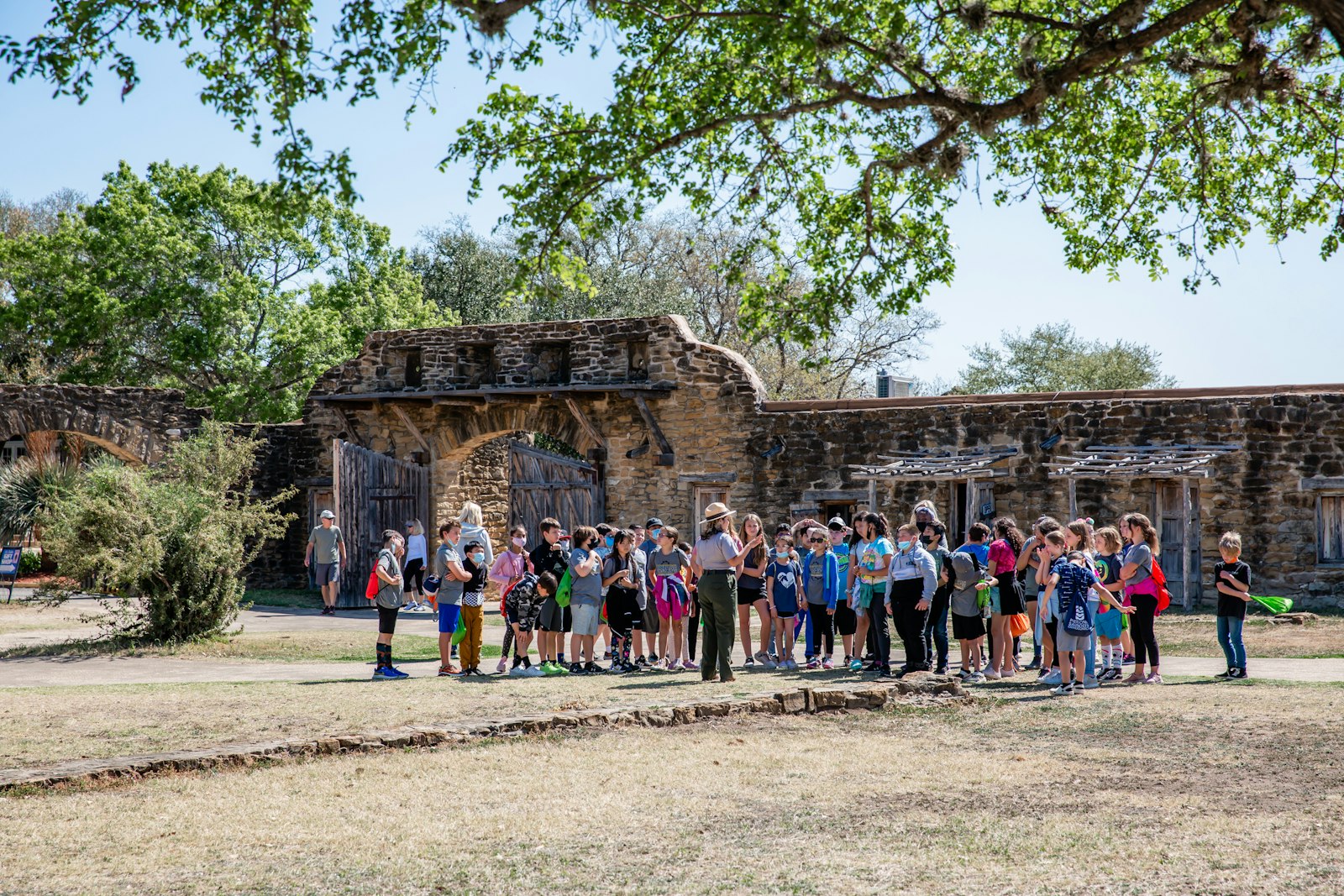
Together, Boziac, Kruger, Lathrop, Reed, and Moreno built the program, fusing a mix of in-park experiences with online learning, with a goal to grow to in-classroom visits in the coming school years. Field trips don’t just happen. Each trip requires months of coordination with schools, planning the curriculum so that it aligns with Texas state standards, day-of logistics, and then, finally, leading the field trips.
Each field trip brings the students to three sites in the park: the church, grist mill, and the housing quarters. A hunter and gatherer activity and game of charades to understand language barriers make the historic park come to life for the students who typically have only learned about the missions in textbooks despite living within a few miles of the park.
And by creating a virtual component as well, fourth graders around the country are able to engage with the park and these big dialogical questions about identity and power.
Today, it’s clear that it’s not just the busloads of students bringing new energy to the park. The seasonal rangers support has infused life into the field trip program. Although the sustainability of the program requires continued funding, with the new infrastructure in place, the next classes of fourth graders will be able to experience these field trips and the work of the rangers for years to come.
And ensuring these experiences are available for future classes is paramount. For two-thirds of students accessing parks through Open OutDoors for Kids grants, this is their first experience in a national park.
Knowing this is such a pivotal interaction, Lathrop and his team have a charge beyond sharing the facts and history of the park: They are fostering the next generation of public leaders and park stewards.
"A positive first impression is super important,” Lathrop said. “These are our future leaders. These are our future senators. These are our future CEOs. And these fourth graders, in no short time, are going to be deciding the fate of our national parks.”
Thanks To Our Partners
Generous funding from Youth Engagement & Education premier partner Union Pacific Railroad supported the Open OutDoors for Kids program at San Antonio Missions National Historical Park. Open OutDoors for Kids is made possible through support from Apple, Columbia Sportswear, Humana, Maverik, Parks Project, Sierra, and many other donors.
Our Work
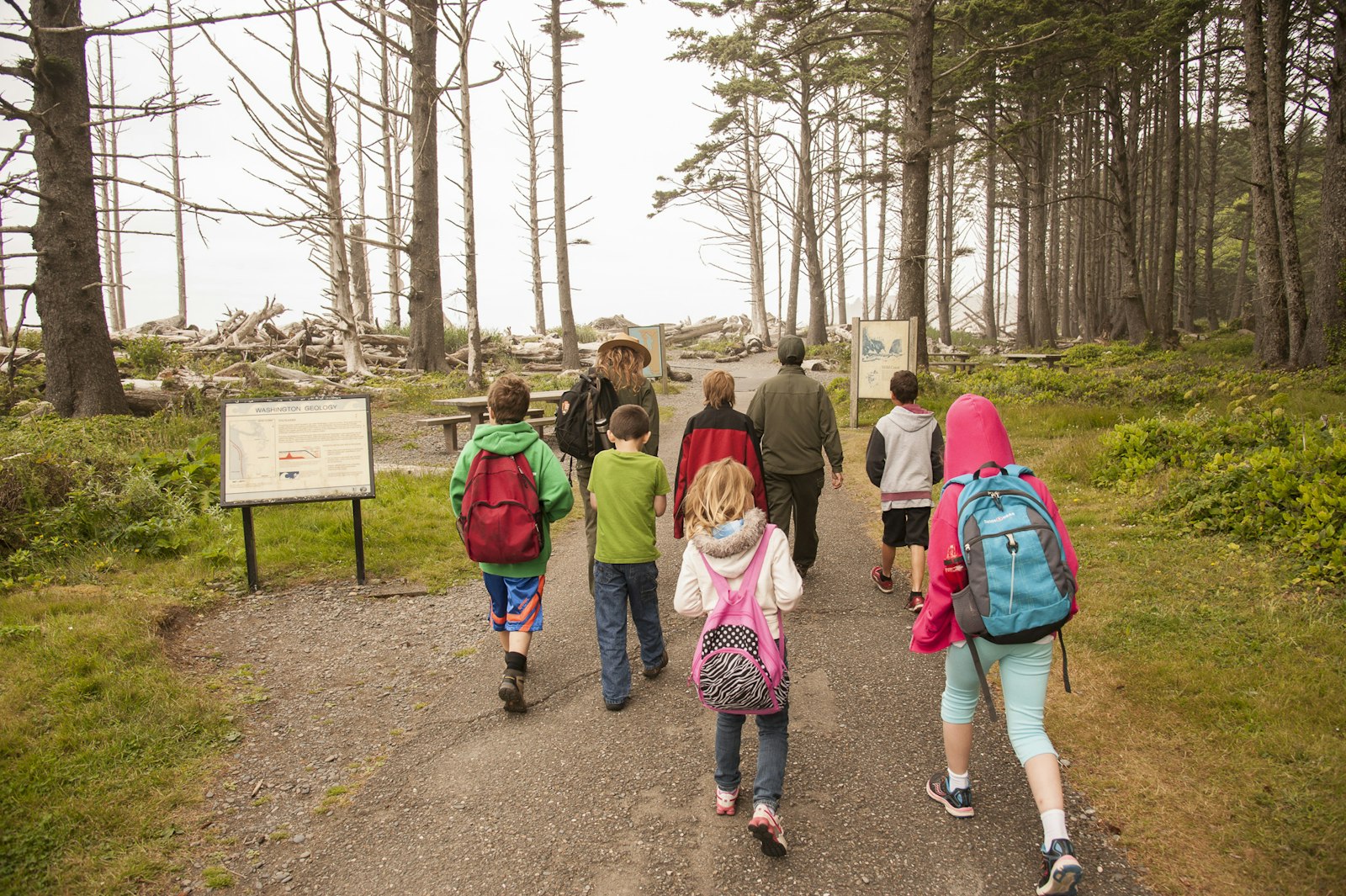
Help Create More Learning Opportunities
When you support NPF and our partners, you’re giving students nationwide more chances to experience our parks in new and exciting ways, including parks as classrooms in which to learn and grow. Help inspire the next generation of conservationists, historians, and advocates.
